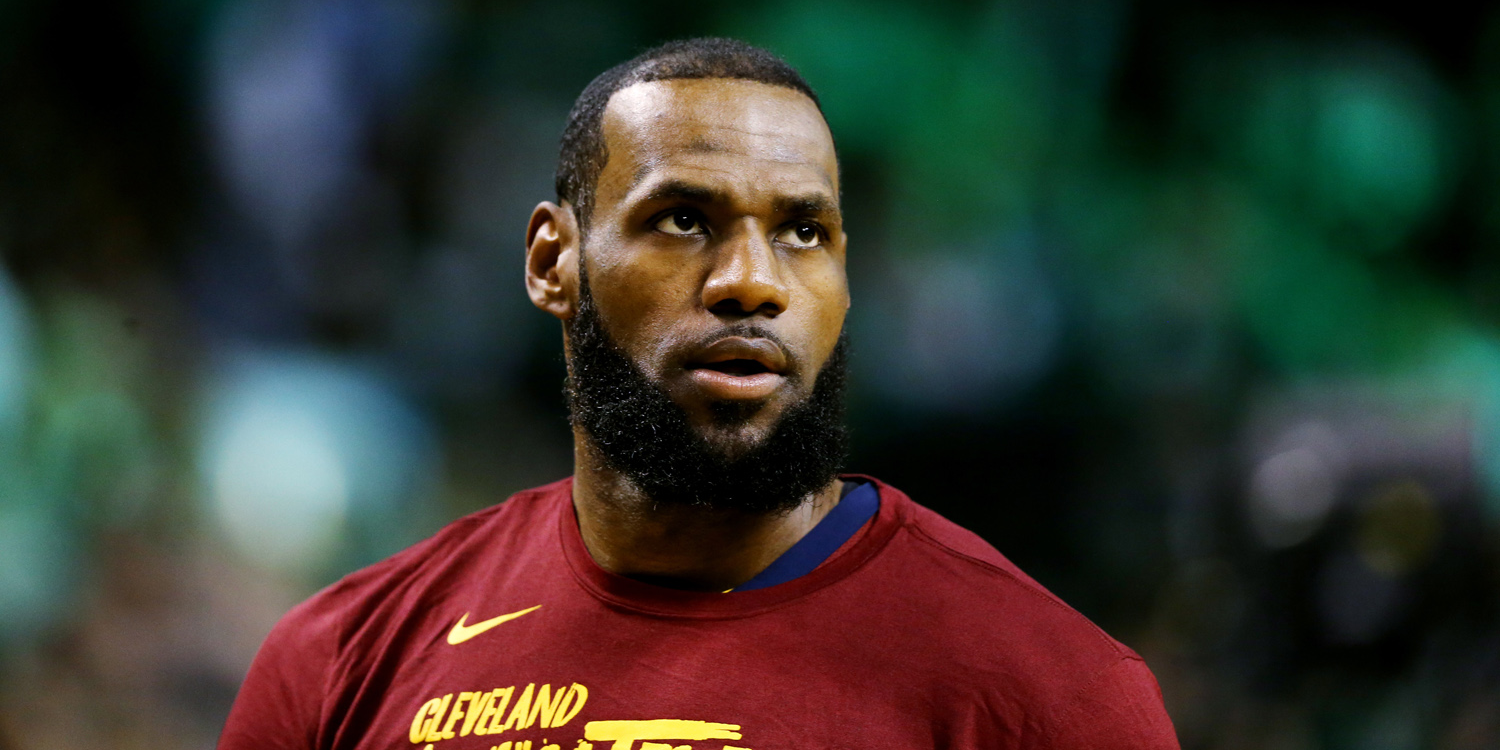- LeBron James can become a free agent this summer, something the Cleveland Cavaliers have reportedly been bracing for since 2016.
- James has played on short-term contracts since returning to the Cavs in 2014, using the threat of leaving to keep the team under pressure.
- By getting the Brooklyn Nets’ 2018 pick in the Kyrie Irving trade and refusing to trade it, the Cavs signaled that they were prepared for life without James and would not mortgage the future to improve this year’s team.
LeBron James’ free agency this summer has been the subject hanging over the entire Cleveland Cavaliers season.
James has the chance to opt out of his contract and explore the open market, leading to the possibility of him leaving Cleveland for a new home.
According to The Athletic’s Jason Lloyd, the Cavs have been aware of this and embracing it for nearly two years – since 2016, right after they won the championship over the Golden State Warriors.
“This is an organization that has been bracing for the possibility James could leave again since the start of last season,” wrote Lloyd. “Right about the time the championship banner went up on opening night, whispers about James leaving again had already started circulating among team officials.”
Much of the NBA world first started discussing the possibility of James leaving after the 2017 NBA Finals, when The Ringer's Kevin O'Connor reported that people around the NBA thought James could leave the Cavs for the Los Angeles Lakers.
However, Cavs officials would have good reason to believe James could leave sooner. James, after all, has played on short-term contracts since returning to the Cavs in 2014. That was meant to accomplish two things. James wanted to build up to the Cavs having his full Bird Rights, allowing him to make the maximum amount of money possible when he became a free agent in 2016, the year of the league's salary cap spike. (An obscure rule thwarted his plan for a $200 million contract that he later helped revise).
The second was to keep the pressure on the Cavs to continue improving the team, knowing he could leave each offseason.
Additionally, after helping the Cavs win the championship in 2016, many people believed it took pressure off of James, allowing him to leave for another team if he chose - a "mission accomplished" deal of sorts.
That same pressure may have worn on the Cavs. Lloyd noted that there seems to currently be organizational fatigue from deep playoff runs and the constant pressure associated with James.
When the Cavs traded Kyrie Irving to the Boston Celtics, the centerpiece of their return was not Isaiah Thomas, but the Brooklyn Nets' 2018 pick (eighth following Tuesday's NBA draft lottery). In the event James leaves this offseason, the Cavs have a high lottery pick to draft a potential star to rebuild around.
As Lloyd also noted, the Cavs' refusal to trade it also suggested that they were preparing for James to leave. There was enormous pressure on the Cavs to dangle that pick in trades to look for upgrades to help the team this year. According to Lloyd, James and Tyronn Lue wanted the Cavs to trade the pick to the Los Angeles Clippers for center DeAndre Jordan. The Cavs didn't go through with that move, suggesting they would not mortgage the future to improve this season.
Soon the Cavs, whether they overcome a 0-2 deficit against the Celtics to make the Finals or not, will find out James' future. Free agency is a month and a half away, and the scenario hanging over the team for two years could come to fruition.

